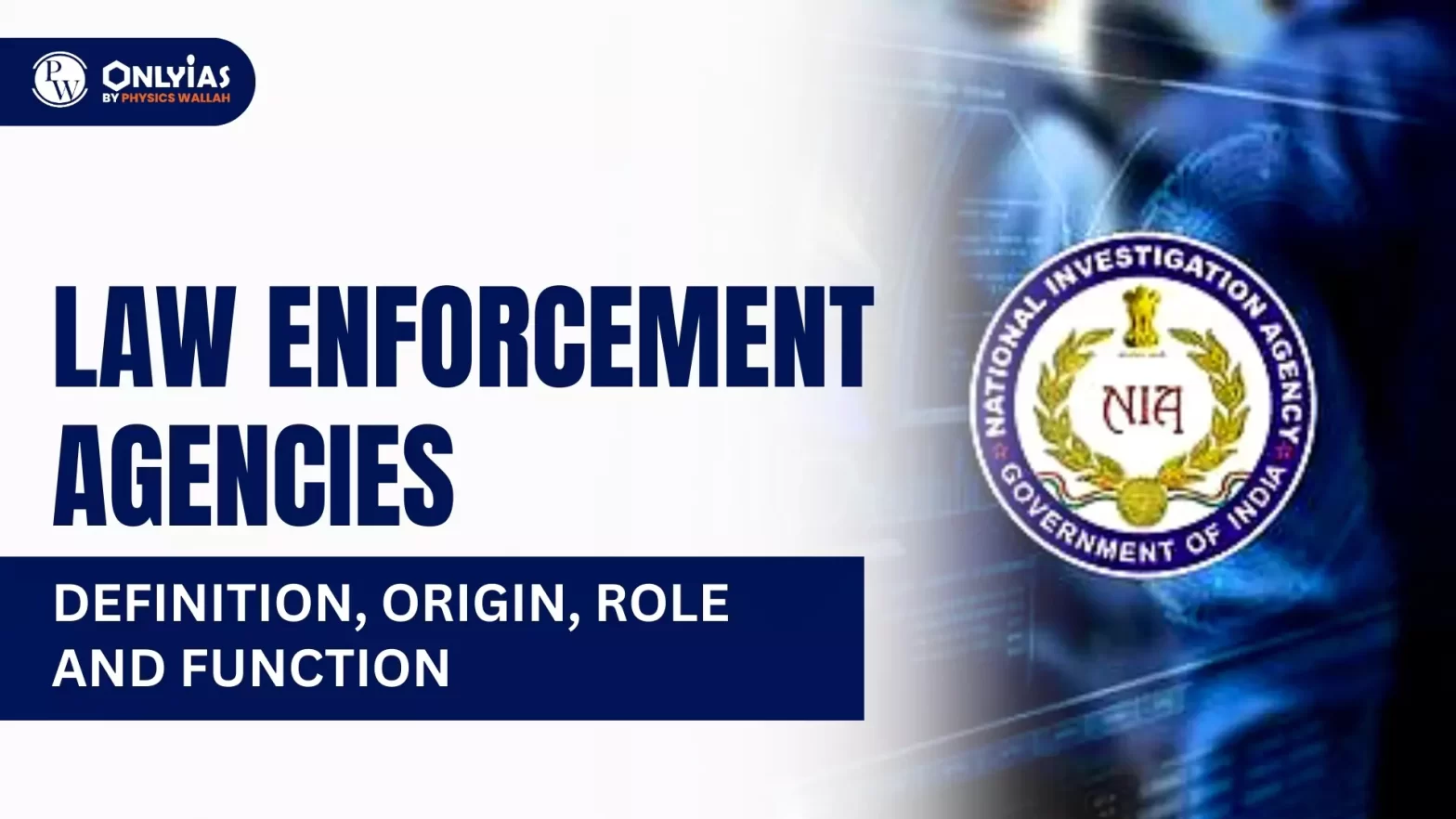Context: India has several law enforcement agencies operating at different levels to maintain law and order, prevent crime, and ensure national security.

Historical, colonial laws, and post-independence events have shaped the evolution of law enforcement agencies in India:
| Must Read | |
| NCERT Notes For UPSC | UPSC Daily Current Affairs |
| UPSC Blogs | UPSC Daily Editorials |
| Daily Current Affairs Quiz | Daily Main Answer Writing |
| UPSC Mains Previous Year Papers | UPSC Test Series 2024 |
Law enforcement agencies refer to organisations or bodies that are responsible for upholding and implementing the law and maintenance of law and order.
CBI is not a statutory body, although it derives its powers from the Delhi Special Police Establishment (DSPE) Act of 1946.
The NIA is tasked with investigating and combating terrorist activities affecting India's sovereignty and integrity. It deals with terror-related cases across the country.
The NSG is a specialised counter-terrorism force used in exceptional circumstances to handle specific situations like terrorist attacks, hostage rescue operations, and related emergencies.
Collaboration involves sharing intelligence, joint operations, task forces, and coordinated efforts between various agencies at local, state, and national levels to ensure national security.

<div class="new-fform">
</div>